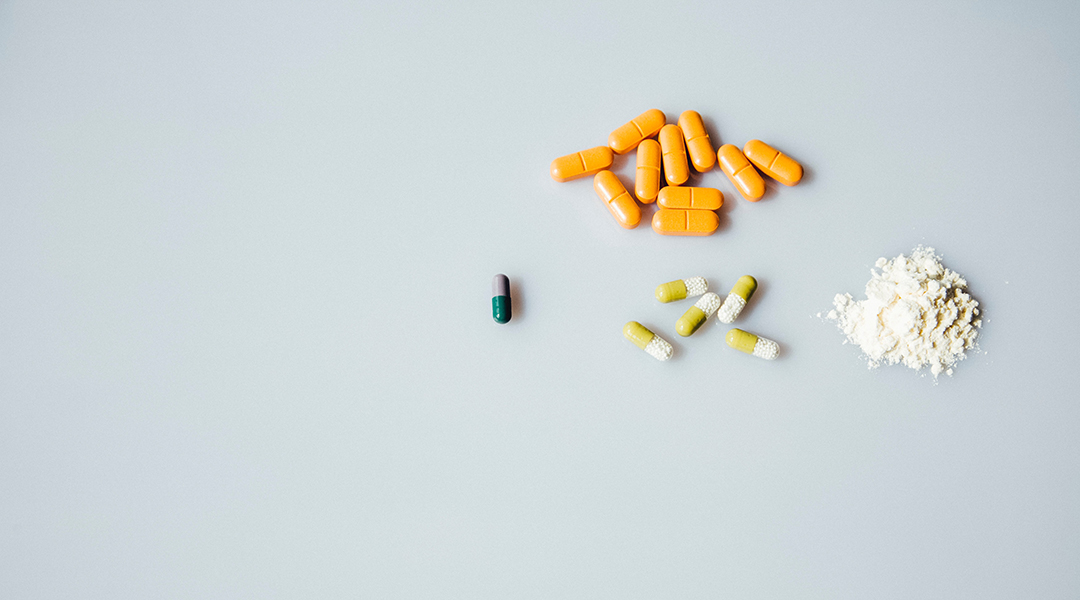As science uncovers new links between disease and diet, public awareness about the potential of food to prevent chronic diseases has grown.
In tandem with this movement, powders, pills, and “functional” foods and drinks loaded with exotic natural ingredients with equally exotic names –– like ashwagandha and kombucha –– have become ubiquitous in health food stores, drugstores, and supermarkets. The health and longevity claims surrounding these trendy products are enticing, making the extra expense seem worthwhile.
“Probiotics”, another buzzword in the health sphere, are hardly new. People have eaten fermented foods that contain live bacteria or yeast — such as yogurt, kimchi, and sauerkraut — for centuries. When consumed in appropriate amounts, probiotic foods can provide health benefits by introducing “good” bacteria into our gut microbiomes, the collection of microbes that inhabit our digestive tracts.
As dietary supplements, probiotics are sold as single bacterial or yeast strains or multi-strain formulations available over the counter in most supermarkets and pharmacies.
However, in the United States, dietary supplements do not undergo the same scrutiny and rigorous testing as over-the-counter drugs, leaving ample room for aspirational claims, which should be taken with a grain of salt.
Skepticism and lack of evidence
According to the labels on products marketed as probiotic, our guts need these microbes to “flourish”, but the reality is that a consensus on what constitutes a normal/healthy microbiome—and conversely, what constitutes an abnormal microbiome—has yet to be reached.
On top of this uncertainty, the extent to which probiotics can alter a healthy person’s gut microbiome remains unknown.
Although some probiotics have been proven to be beneficial in specific cases, such as treating antibiotic-associated diarrhea and keeping inflammatory bowel disease in check, evidence for their universal efficacy is lacking. No large, long-term clinical trials assessing the benefits of probiotics for healthy people have actually been conducted, so their effectiveness is subject to skepticism.
According to Pieter Cohen, an associate professor at Harvard Medical School and expert on supplement safety, the problem with probiotics starts with the name itself.
“Manufacturers can sell any number of hundreds of different bacteria and other live microorganisms as ‘probiotics’, even if there is no evidence that the species of bacteria actually provides a health benefit,” he stated. “These products should be accurately labeled on store shelves as ‘live microorganisms’, he added.
“Since there is no proven benefit of probiotics for healthy individuals, I would certainly recommend eating healthy foods such as yogurt and sauerkraut rather than taking a probiotic pill.”
When asked if the average person should bother taking a probiotic, he responded, “If you’re healthy, no need for a probiotic, full stop.”
According to Cohen, when it comes to probiotic safety, there are no guarantees.
Potential risks of probiotics
What product labels fail to mention is that probiotics can cause infections and allergic reactions in some people, particularly those who are immunocompromised. Since probiotics contain live microorganisms, contamination of the blood with bacteria or fungi is a possibility, which can lead to sepsis (blood poisoning), which can be fatal.
Because of their underdeveloped immune systems, preterm infants are also susceptible to infections from probiotics.
One such incident recently made headlines, causing the US Food and Drug Administration to issue a warning letter to healthcare providers, reminding them that “the FDA has not approved any probiotic product for use as a drug or biological product in infants.”
Antibiotic resistance is another issue. Research suggests that most strains of Lactobacillus, Lactococcus, and Bifidobacteria are generally benign, but when taken simultaneously over the long-term with broad-spectrum antibiotics, there is a rare chance that bacteria and yeast become multidrug-resistant as a result of genes being transferred from probiotics to pathogenic bacteria in the gut.
Poor quality control by manufacturers also poses risks. With lax regulations on dietary supplements, not only can products be of low-quality, with lower numbers of active bacteria than what the label states—they may also contain microorganisms other than those explicitly listed.
Although unexpectedly lower colony-forming units (CFUs) of bacterial strains technically constitute false advertising, the probiotic would simply be less potent than expected, not more harmful. On the other hand, undisclosed or undetected microorganisms carry a greater risk because they could potentially be pathogenic, such as E. coli or Salmonella.
Making informed choices
Despite these potential risks, consumers who wish to take probiotics can still make informed choices by doing some of their own research. Being aware of misconceptions and myths is also important.
One misconception has to do with the terms “probiotic” and “fermented”, which are not synonymous. Although fermented foods such as yogurt, kimchi, and sauerkraut are natural sources of probiotics, wine, beer, and sourdough bread — although also fermented — do not retain any living microbes because of their preparation process.
Ditto for Kombucha, a popular fermented drink made from sugar, black or green tea, the liquid from a previous batch, and a symbiotic mixture of bacteria and yeast known as “mother” or “Scoby”. Although it has been touted as a health food product and certain brands may add probiotics, the bacteria naturally present in kombucha has not been proven to be probiotic. Scoby also has the same issue as probiotic supplements — it can potentially cause infections in the immunosuppressed.
To help navigate the confusion surrounding probiotics, guides are available that can assist clinicians and consumers in making informed decisions. For example, the Clinical Guide to Probiotic Products Available in USA assigns a level of recommendation to a probiotic based on the available scientific evidence and is annually reviewed and updated with the latest research findings.
NSF, an independent, third-party product verification organization, rigorously tests supplements for contaminants, but not efficacy. Approved products on the market, including probiotics, bear the NSF certification mark and can be searched in their online database, giving consumers some peace of mind.
Feature image credit: Markus Spiske on Unsplash

















